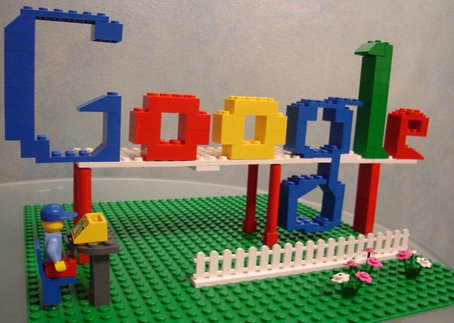
US v. Google is not going to be the tech trial of the decade. Today the government has wrapped up a wide-ranging investigation of the search giant's practices in both its core search business, and its use of standards-based patents. No major charges will be brought.
Google agreed to a series of changes in its business practices in search. For example, the company will stop scraping content from "vertical" websites that focus on shopping or travel for use in its own products. Google also agreed to stop using its standard-essential patents to seek injunctions, which should force a major change in the company's litigation strategy.
The commission voted 4-1 to end the patent investigation with a consent decree, and the vote to close the search investigation without action was 5-0.
"Today's action delivers more relief for American consumers faster than any other option available," said FTC Chairman Jon Leibowitz. "[The agreement] protects competition and consumers in a number of crucial markets."
"Google is unquestionably one of America's great companies, innovative in fields from its core search engine to driverless cars," Leibowitz continued. "With today's action from the FTC, Google can refocus on innovation—but with a clearer understanding that it must do so while competing fairly."
No case over "Search bias" to be brought, says FTC chief
The most closely watched question here was whether the government would take action over Google's search results. The answer to that is a clear no. The Commission voted 5-0 to end the search investigation without bringing charges.
Leibowitz emphasized that after all the interviews, and the millions of documents that were handed over, there just wasn't clear evidence Google had biased search in favor of its own products. Regulators looked at the algorithm closely and it came up clean.
While the company competed aggressively with its search rival Microsoft, the changes in its product over time don't add up to illegal "search bias," said Leibowitz.
"Tellingly, Google's search engine rivals engaged in many of the same product design choices that Google did, suggesting this process can benefit consumers," he said.
Leibowitz headed off criticism he knows is on the way from Google rivals, like the FairSearch coalition, which includes Google's rivals in the travel business as well as Microsoft.
"Anyone in the business of being chairman of the chief antitrust enforcement agency would like to bring 'the big case,'" acknowledged Leibowitz. "But more important than that is to faithfully apply the law."
Two practices around search and advertising will change, however. Most importantly, Google will give websites the ability to "opt out" of being displayed on Google's specialized search properties for things like travel or shopping—without being penalized on Google's main "organic" search page.
Second, Google has agreed to make it easier for advertisers to customize, manage, and export their ad campaigns. That will make it simpler for advertisers to move their business to a competitor like Bing if they so choose.
Both of those stipulations will be enforced through FTC consent decrees. In a statement about the closure of the investigation, Google described them as "voluntary product changes."
In patent wars, Google faces a partial disarmament
When it comes to Google's patent strategy, Leibowitz's criticisms were much harsher. The FTC was taking steps to end Google's "misuse" of standard-essential patents, he said.
Companies like Google-owned Motorola have a wide range of patents they agreed to license at "fair, reasonable, and non-discriminatory" rates.
"Other companies took Motorola at its word," said Leibowitz. "But rather than offer the license it had promised, Motorola changed the rules of the game." The company sought injunctions, or "exclusion orders" from the International Trade Commission, that could knock its competitors products from the market altogether. "Google inherited this litigation and continued the same practices," said Leibowitz.
By seeking injunctions, Google could have blocked access to some products or used injunction demands to squeeze higher fees from competitors.
Here, Google has made a big concession—it simply won't try to get injunctions anymore. As far as Motorola's cases at the ITC, for example, that would seem to mean Google has committed to packing up and going home.
There are still limited situations in which Google can pursue an injunction. For example, if the extensive arbitration process laid out in the agreement [PDF] fails, or if a party negotiating with Google refuses to take a license under any circumstances, Google can go back to seeking an injunction.
For example, if a potential licensee refuses to take a license on any terms;
It also means the company, and its handset-maker partners like Samsung, will have less powerful ammunition to counter patent attacks brought by competitors. Microsoft and Apple have generally used "feature" patents that have not been shown to standards-setting bodies like the IEEE, unlike Google. In the smartphone patent wars, Google and Android have been on the defensive overall. They have filed lawsuits for patent infringement only after they were sued first. Now that they can't ask for injunctions, Google won't be able to hit back as hard.
reader comments
80